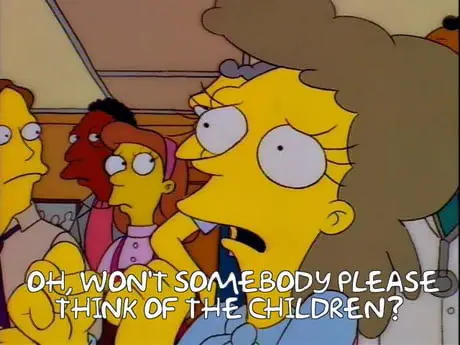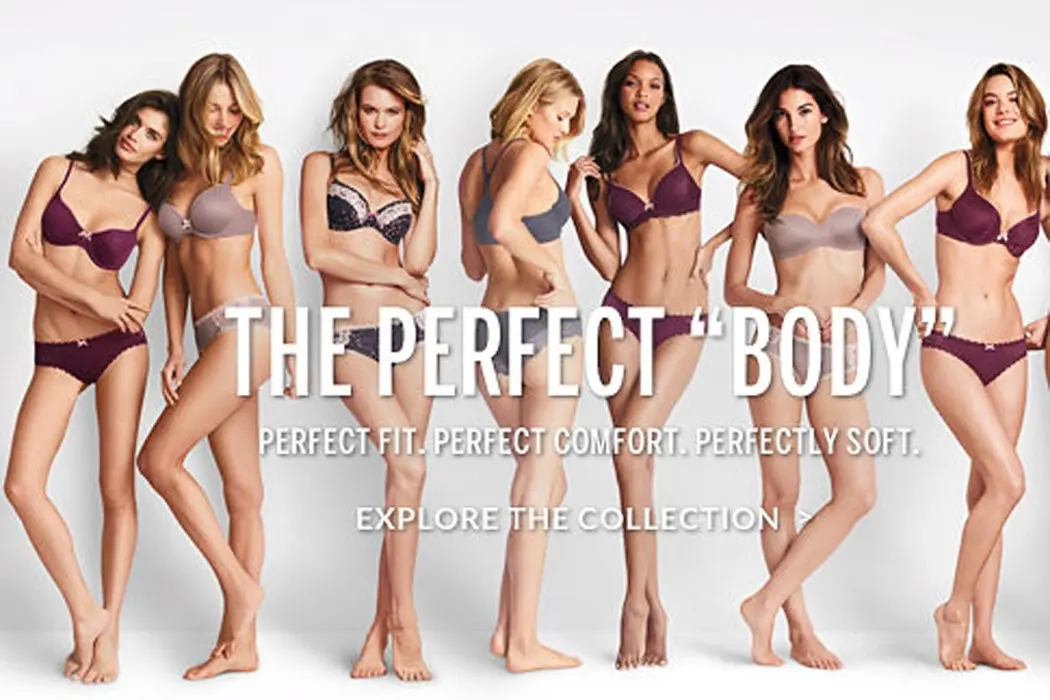WTF Teenager Social Media Ban?!

Federal Labor have submitted the Online Safety Amendment (Social Media Minimum Age) Bill 2024. I don’t follow the news so this was absolutely bizarre and out of nowhere to me. 5 seconds of googling, turns out of course that it was the result of lobbying. A group called 36 months got the ball rolling in mid 2024. The public founders are Michael ‘Wippa’ Wipfli; A breakfast radio show host on Nova. The radio station is personally owned by Lachlan Murdoch. Alongside Rob Galluzzo, self described as the ‘founder of production company Finch’. Finch is actually an advertising agency, specialising in TV ads.
So the front and centre face of the movement are two guys from legacy media. It’s amazing how little they bothered to present as a real grass roots movement. In interviews they boast about receiving help from News Corp, and Dominic Perrottet, former liberal premier of New South Wales gave them lobbying advice. Dominic was even alongside them in the initial press interviews.
Among their team is
- Simone Gupta:, another advertising agency boss.
- Helen Johnson: Head of Comms for Nova radio.
- Greg Attwells: Previous Head of Comms for Finch, full time employed by 36 Months for the last 7 months.
- Kate Feather: Previously Rob Galluzzo’s assisstant at Finch.
- Niki Waldegrave: Public relations consultant, who boasts of her contribution on her resume:
Securing 1200+ pieces of coverage, mostly tier 1 media, for 36 Months, which successfully lobbied the Federal Government to mandate age 16 as the minimum age for social media citizenship.
Financing the lobbying group are some corporate sponsors straight out of left field.
- Hyundai
- Medibank
- IHG Hotels & Resorts
- Nestle’s KitKat brand. Cos you know, ‘have a break, have a kitkat. Have a break …until 16’.
It feels like an insight to these people’s minds that a marketing slogan is the best means to influence people’s opinions. Instead of, I dunno, facts, research, arguments…
Not to mention support from News Corp, who have their own ‘Let them be kids’ platform, which kicked off mid 2024 too. It uses the exact same ‘social media is bad for kids mental health’ lines. Even the exact same 36 month length of ban. 🤔

Advertisers are Gross#
I personally have strong opinions against advertising as an industry. For me the entire premise is a bit yuk. I could point out that Finch has done ads for gambling and beer, and how maybe that’s not ideal content for kids. Nor is ads for sugary drinks/lollies like kitkats. Which makes it so insulting when they turn around to say ’think of the children’.
Naomi Klein’s book No Logo has an excellent rundown of how advertising and branding post WWII moved from representing products to representing identities and lifestyles. A massive focus of this was the youth market, with what teenagers identified with being seen as ‘cool’ by the wider population. Exploiting this, advertising and marketing became dominated with telling young people who they should want to be. This is not just gross, but it reduce teenager’s self esteem, especially girls.

They’re selling an identity, not a product.
How much damage has advertising done, portraying the desired lifestyle that is full of the worst junk food and simultaneously the most unrealistic bodies. Is scrolling social media really damaging self esteem and informing your desires any more than paging through Dolly or Girlfriend magazines in the 2000s? 36 months has to dance around the underlying problems. It’s why I haven’t bothered to criticise anything they’ve said. It’s all so trite and vague that it borders on meaningless.

But it’s the memes that give teenagers eating disorders.
At the last minute, 36 months made sure to exclude youtube from the ban. Youtube, the prime target of every ‘internet is bad for your kids brain’ piece. It’s an endless pile of terrible content, with an opaque algorithm designed to suck up attention and deliver video ads. The video ad agency dived in to make sure teenagers could still watch video ads. This is how legislation is made folks.
In comparison, a movement to limit unhealthy food advertising to children started around the same time as 36 months. It has not become law.
Other Influences#
I have to also mention the contribution from South Australian Premier Peter Malinauskas and New South Wales Premier Chris Minns. They set up the Social Media Summit in October, which turns out was being run ‘with the intent of building momentum’ for a social media ban. Seems like Malinauskas read Jonathan Haidt’s book The Anxious Generation: How the Great Rewiring of Childhood is Causing an Epidemic of Mental Illness, and was immediately convinced. They put Haidt as a keynote speaker via video message. Malinauskas opened the summit with “The results are in and the science is settled”. A weird thing to say when you’ve only read one book by Haidt, who is at odds with every academic on this issue. Don’t forget Haidt is one of those ‘anti-woke’ idiots, who publicly denounced academia because he couldn’t stand seeing black people have a chance to be a part of it.
Also at the event was Chief Justice Robert French, who authored a report laying out the legal framework to deny teenagers their voice.
Some in the media have bothered to point out these influences on the ban, but it’s hardly a revelation when Albo himself thanked them in the related press conference. Only on that darn social media can you find any one pointing out that when they say ’experts, parents, youth organisations, advocacy groups’, they actually mean legacy media and advertising lobbying groups.
It’s why I’m so flabbergasted by 36 Months. Usually you’d have some geezer like Jonathan Haidt, a social science professor, who wrote a book, to be the face of the movement. The PR firms work to make sure you don’t notice he’s completely out of step with the rest of academia and research. Instead 36 months is the PR firm, just directly marketing what they want.
A ban on speech, not consumption#
A key failing of the ban is while it prevents teenagers from creating accounts, but not from access to social media. They still will have the feed of ads and misinformation, but now with no means to curate or respond to what they see. This ban completely blows away any method of enabling safer, better access to social media for teenagers.
All of this is to ignore the positives of social media. The prime example is a LGBT+ teenager with an unsupportive family. Online they can find a much more accepting community. It’s not just marginalised groups, turns out 73% of teenagers turn to social media for mental health support.
Don’t ask me how I know, but the mainstream social medias that are being banned don’t have much harmful content. You gotta go out to darker corners of the internet to come across horrifying stuff that will inflict physic damage. If anything, the clean, censored major social medias may already be going too far and prevent healthy conversations about mental health. ‘unalive’ has replaced the word suicide on platforms that delete any content that mentions those topics. Recently twitch have started punishing content that includes politics or ‘Sensitive Social Issues’. What are these issues? “Streams focused on discussing topics like gender, race, sexuality, or religion…”
Possible ulterior motives#
So now we know who supported it, we can make some guesses as to why.
Legacy media seeking to minimise the social impact of social media.#
Perhaps an aspect, especially for the Murdochs. But my god have they missed the boat. No one under 50 uses Facebook anymore. No one under 30 uses Instagram. Twitter has been a sinking ship for years now. Many teenagers today prefer smaller, private communities on chat applications. This is because social media is fucking terrible. I’ve seen many people, young and old, support this ban because “facebook is shit, of course less of it is a good thing”.
Advertising avoiding laws that would limit what they can advertise.#
This seems pretty plausible. Not just gambling and drinking ads, but everything that negatively impacts people. The Australian Ad Observatory are looking into greenwashing, finance, unhealthy food, scams, and online privacy invasion. Imagine if the public conversation was instead ‘hey this ad companies are violating our online privacy, just to show us advertising that negatively impacts our lives’. Shifting the conversation to a age limit has been very effective. Attempts to steer the topic back to regulation has fallen on deaf ears.
Government creating a legally binding link between social media accounts and identities.#
The technical implementation will almost surely involve myGov’s upcoming Digital ID. I feel like the government already has plenty of ways to identify social media users, but I guess the more draconian the better.
Denying teenagers a voice in culture.#
It’s tempting to say teenagers can’t contribute anything meaningful to culture, since they are idiots. Instead I tend to find young people are the most energetic activists for political change, and are always on the correct side of history. Perhaps the government and legacy media would like teenagers to shut up about climate change and the genocide in Gaza, and let legacy media dictate the narrative instead.
Comment
- Username, 2026-01-27